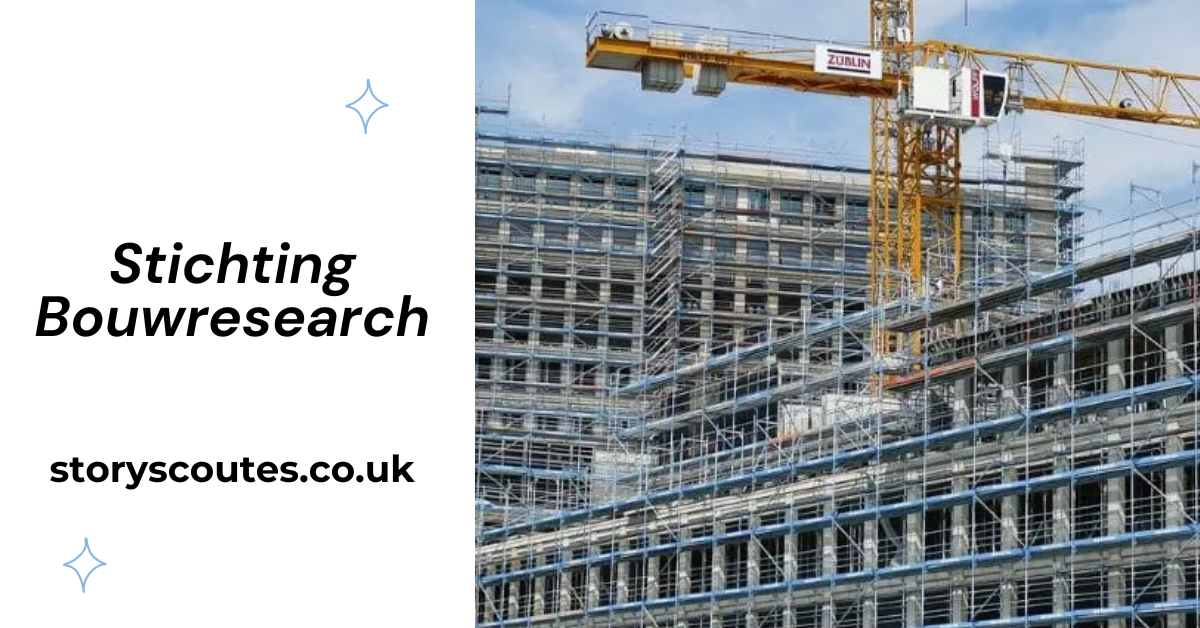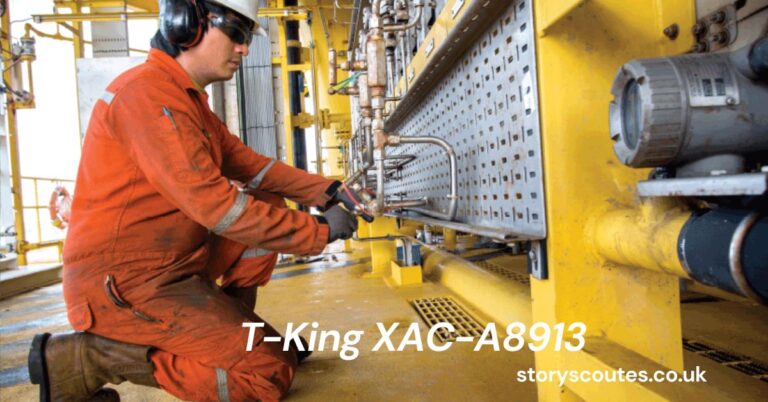Stichting Bouwresearch – Innovating Dutch Construction for a Sustainable Future
Stichting Bouwresearch, often abbreviated as SBR, stands as a beacon of innovation and progress in the Dutch construction industry. This non-profit organization, whose name translates to “Foundation for Building Research” in English, has been at the forefront of advancing building techniques, materials, and practices in the Netherlands for decades.
Stichting Bouwresearch (SBR) is a Dutch non-profit organization driving innovation in construction. It focuses on sustainable building practices, energy efficiency, and technological advancements to improve the quality and sustainability of the built environment.
Located in the heart of Rotterdam, a city known for its cutting-edge architecture and urban planning, Stichting Bouwresearch serves as a crucial link between academic research, industry professionals, and government regulators. By fostering collaboration and driving innovation, SBR plays a pivotal role in shaping the future of construction not just in the Netherlands, but across Europe and beyond.
For those unfamiliar with the Dutch construction landscape, Stichting Bouwresearch might seem like just another industry body. However, its influence extends far beyond typical organizational boundaries. SBR acts as a catalyst for change, pushing the boundaries of what’s possible in building design, sustainability, and efficiency.
History and Evolution of SBR
The story of Stichting Bouwresearch begins in the post-World War II era, a time of significant reconstruction and development in the Netherlands. Founded in 1948, SBR emerged from the need to rebuild the country’s infrastructure and housing stock more efficiently and effectively.
In its early years, Stichting Bouwresearch focused primarily on addressing immediate post-war construction challenges. These included developing faster building techniques, exploring new materials to replace scarce resources, and finding ways to create more affordable housing for a growing population.
As the decades progressed, so did the scope and sophistication of SBR’s work. The 1970s saw a shift towards energy efficiency and sustainability, spurred by the global oil crisis. Stichting Bouwresearch began pioneering research into insulation techniques, alternative energy sources for buildings, and more environmentally friendly construction materials.
Also Read: Nebraskawut Cappello – Midwest Meets Italy in Cultural Fusion
The digital revolution of the 1980s and 1990s brought new opportunities for Stichting Bouwresearch. The organization embraced computer-aided design and modeling, using these tools to push the boundaries of architectural possibility while also improving precision and reducing waste in the construction process.
Today, Stichting Bouwresearch stands at the intersection of tradition and innovation. While it continues to honor its roots in practical, applied research, SBR now tackles complex challenges like climate change adaptation, circular economy principles in construction, and the integration of smart technologies into buildings and infrastructure.
Mission and Core Values
At the heart of Stichting Bouwresearch lies a clear and compelling mission: to elevate the quality, sustainability, and efficiency of the built environment through research, innovation, and knowledge sharing. This mission statement encapsulates the organization’s commitment to not just improving individual buildings or projects, but to enhancing the entire ecosystem of construction and urban development.
The core values that guide Stichting Bouwresearch in pursuing this mission include:
- Innovation: SBR consistently seeks out new ideas, technologies, and approaches to push the boundaries of what’s possible in construction.
- Collaboration: Recognizing that the best solutions often come from diverse perspectives, Stichting Bouwresearch actively fosters partnerships between researchers, industry professionals, government bodies, and international organizations.
- Sustainability: Environmental responsibility is woven into the fabric of SBR’s work, with a focus on reducing the carbon footprint of buildings and promoting circular economy principles.
- Quality: Stichting Bouwresearch is committed to maintaining the highest standards in both its research methodologies and the practical applications of its findings.
- Knowledge Sharing: SBR believes that information should be accessible to all. It works tirelessly to disseminate its findings and best practices throughout the industry.
- Practicality: While embracing cutting-edge research, Stichting Bouwresearch always keeps one foot firmly planted in the real world, ensuring that its work has practical applications for the construction industry.
These values don’t just exist on paper; they permeate every aspect of Stichting Bouwresearch’s operations. From the selection of research projects to the way findings are communicated, SBR’s commitment to these principles is evident.
Key Areas of Focus
Stichting Bouwresearch’s work spans a wide range of topics within the construction and built environment sectors. However, several key areas of focus have emerged as particularly significant in recent years:
Also Read: Käänjä – Role in Global Communication
- Sustainable Building Practices: As climate change concerns intensify, SBR has doubled down on its efforts to promote sustainable construction. This includes research into energy-efficient building designs, the use of recycled and renewable materials, and methods to reduce waste throughout the construction process.
- Building Physics and Energy Efficiency: Stichting Bouwresearch conducts in-depth studies on how buildings interact with their environment. This includes research on thermal insulation, moisture control, acoustics, and natural lighting. The goal is to create structures that are not only comfortable for occupants but also minimize energy consumption.
- Innovative Construction Technologies: From 3D printing of building components to the use of robotics in construction, SBR is at the forefront of exploring how new technologies can revolutionize the building process.
- Circular Economy in Construction: Stichting Bouwresearch is pioneering ways to apply circular economy principles to the construction industry. This involves designing buildings for easy disassembly and reuse, as well as finding new life for construction waste.
- Smart Buildings and Infrastructure: SBR is deeply involved in research on how to integrate digital technologies into buildings and urban infrastructure. This includes work on sensors, data analytics, and the Internet of Things (IoT) to create more responsive and efficient built environments.
- Climate Adaptation: As extreme weather events become more common, Stichting Bouwresearch is focusing on how buildings and cities can be designed to withstand and adapt to changing climate conditions.
- Health and Well-being in Buildings: Recognizing the profound impact that buildings have on human health, SBR conducts research on indoor air quality, natural lighting, ergonomic design, and other factors that contribute to occupant well-being.
- Affordable Housing Solutions: Drawing on its post-war roots, Stichting Bouwresearch continues to explore innovative ways to create high-quality, sustainable housing at accessible price points.
In each of these areas, Stichting Bouwresearch doesn’t just conduct theoretical research. It works closely with industry partners to test and implement new ideas, ensuring that its work has real-world impact.
Research Methodologies and Approaches
Stichting Bouwresearch’s reputation for excellence is built on its rigorous and innovative research methodologies. SBR employs a multi-faceted approach that combines theoretical analysis, practical experimentation, and real-world application.
- Literature Review and Trend Analysis: Before diving into new research, SBR conducts thorough reviews of existing literature and analyzes current trends in the construction industry. This ensures that their work builds upon existing knowledge and addresses genuine industry needs.
- Laboratory Testing: Stichting Bouwresearch maintains state-of-the-art laboratory facilities where new materials, construction techniques, and technologies can be tested under controlled conditions. These labs allow for precise measurements and repeatable experiments.
- Field Studies: Recognizing that real-world conditions often differ from laboratory settings, SBR frequently conducts field studies. These involve monitoring actual buildings and construction sites to gather data on performance, efficiency, and user experiences.
- Computer Modeling and Simulation: Advanced computer models allow Stichting Bouwresearch to simulate complex scenarios, from the energy performance of buildings over decades to the structural integrity of designs under extreme conditions.
- Collaborative Research Projects: Many of SBR’s most impactful studies involve collaboration with universities, industry partners, and other research institutions. These partnerships bring together diverse expertise and resources.
- Pilot Projects: To bridge the gap between research and practice, Stichting Bouwresearch often initiates pilot projects. These small-scale implementations of new ideas provide valuable real-world data and demonstrate feasibility to industry stakeholders.
- Post-Occupancy Evaluations: For completed projects, SBR conducts thorough post-occupancy evaluations. These assessments gather feedback from building users and analyze long-term performance, providing crucial insights for future designs.
- Interdisciplinary Approach: Recognizing that construction challenges often require diverse expertise, SBR brings together professionals from various fields including engineering, architecture, materials science, environmental studies, and social sciences.
This comprehensive approach ensures that Stichting Bouwresearch’s findings are not only scientifically sound but also practical and applicable in real-world scenarios.
Collaborative Partnerships and Networks
Stichting Bouwresearch understands that innovation thrives on collaboration. As such, SBR has cultivated an extensive network of partnerships that span academia, industry, government, and international organizations.
- Academic Partnerships: SBR maintains close ties with leading Dutch universities such as Delft University of Technology, Eindhoven University of Technology, and Utrecht University. These partnerships facilitate knowledge exchange, provide access to cutting-edge research facilities, and help nurture the next generation of construction professionals.
- Industry Collaborations: Stichting Bouwresearch works hand-in-hand with construction companies, architects, engineers, and materials manufacturers. These partnerships ensure that SBR’s research addresses real industry needs and that innovations can be quickly implemented in practice.
Also Read: Käntäjää – A Details Guide to Translation in 2024 - Government Relations: SBR serves as a trusted advisor to Dutch government bodies at national, provincial, and municipal levels. This relationship allows Stichting Bouwresearch to influence policy and regulations while also staying attuned to broader societal goals.
- International Networks: Recognizing that construction challenges are often global in nature, SBR participates in international research networks and collaborates with organizations like the International Council for Research and Innovation in Building and Construction (CIB).
- Cross-Sector Partnerships: Stichting Bouwresearch often collaborates with organizations outside the traditional construction sector, including technology companies, environmental groups, and health organizations. These partnerships bring fresh perspectives to construction challenges.
- SME Engagement: Recognizing the importance of small and medium-sized enterprises (SMEs) in the construction sector, SBR has specific programs to engage with and support these businesses.
- Public-Private Partnerships: Many of SBR’s larger projects involve public-private partnerships, combining government funding with private sector expertise and resources.
These collaborative networks allow Stichting Bouwresearch to leverage a wide range of expertise, resources, and perspectives in its work, enhancing the depth and applicability of its research.
Impact on Dutch Construction Industry
The influence of Stichting Bouwresearch on the Dutch construction industry is profound and multifaceted. SBR’s work has shaped practices, policies, and innovations across the sector.
- Standards and Guidelines: Many of the standards and guidelines used in Dutch construction today have their roots in SBR research. From energy efficiency requirements to safety protocols, these standards have elevated the quality of construction nationwide.
- Innovation Adoption: By bridging the gap between research and practice, Stichting Bouwresearch has accelerated the adoption of innovative technologies and techniques in the Dutch construction industry. This has helped maintain the Netherlands’ position as a global leader in sustainable and efficient building practices.
- Skills Development: Through its educational initiatives and training programs, SBR has played a crucial role in upskilling the Dutch construction workforce. This has been particularly important as the industry transitions towards more sustainable and technologically advanced practices.
- Cost Reduction: Many of the efficiency improvements pioneered by Stichting Bouwresearch have led to significant cost reductions in construction projects. This has made high-quality, sustainable buildings more accessible across the Netherlands.
- Sustainability Leadership: The Netherlands is often cited as a leader in sustainable construction, a position that owes much to SBR’s tireless work in this area. From energy-neutral buildings to circular construction practices, Stichting Bouwresearch has been at the forefront of green building innovation.
- Policy Influence: SBR’s research and recommendations have informed numerous policy decisions at local and national levels. This has helped create a regulatory environment that encourages innovation and sustainability in construction.
- Industry Cohesion: By bringing together diverse stakeholders and fostering collaboration, Stichting Bouwresearch has helped create a more cohesive and cooperative construction industry in the Netherlands.
International Influence and Collaborations
While Stichting Bouwresearch is a Dutch organization, its influence extends far beyond the Netherlands’ borders. SBR’s international activities and collaborations have positioned it as a global thought leader in construction research.
- Knowledge Export: Many of the innovations and best practices developed by SBR have been adopted internationally. From sustainable building techniques to advanced modeling methodologies, Stichting Bouwresearch’s work has influenced construction practices worldwide.
Also Read: Käntäj – know the Revolutionary Translation Tool in 2024 - International Research Projects: SBR frequently participates in large-scale international research projects, often funded by bodies like the European Union. These projects address global challenges such as climate change adaptation in urban environments or the development of next-generation building materials.
- Global Partnerships: Stichting Bouwresearch has established partnerships with leading research institutions around the world. These include collaborations with organizations like the U.S. Green Building Council, the UK’s Building Research Establishment, and Japan’s Building Research Institute.
- Conference Participation: SBR researchers regularly present their findings at international conferences, contributing to global dialogues on construction innovation and sustainability.
- Visiting Researcher Program: Stichting Bouwresearch hosts visiting researchers from around the world, fostering international knowledge exchange and cross-cultural learning.
- Consultancy Services: SBR occasionally provides consultancy services for international projects, helping to implement Dutch construction innovations in diverse global contexts.
- Best Practice Sharing: Through its publications and online resources, many of which are available in English, Stichting Bouwresearch shares its findings and best practices with a global audience.
Notable Projects and Achievements
Over its long history, Stichting Bouwresearch has been involved in numerous groundbreaking projects and has achieved significant milestones. Here are some notable examples:
- Energy-Neutral Residential Areas: SBR played a crucial role in developing the concept and implementation strategies for energy-neutral neighborhoods in the Netherlands. The Stad van de Zon (City of the Sun) project in Heerhugowaard is a prime example, where an entire district was designed to produce as much energy as it consumes.
- Circular Building Design Guide: Stichting Bouwresearch developed a comprehensive guide for circular building design, which has become a reference point for architects and engineers looking to implement circular economy principles in construction.
- Building Information Modeling (BIM) Implementation: SBR was at the forefront of promoting and standardizing the use of BIM in the Netherlands, significantly improving project coordination and reducing waste in the construction process.
- Flood-Resistant Building Techniques: Given the Netherlands’ vulnerable position to sea-level rise, SBR has pioneered research into flood-resistant building techniques. This work has informed both Dutch water management strategies and international approaches to building in flood-prone areas.
- Healthy Building Index: Stichting Bouwresearch developed a comprehensive index for assessing the health impact of buildings on their occupants. This tool has been widely adopted in the Netherlands and has influenced similar initiatives internationally.
- 3D-Printed Housing: SBR has been involved in several projects exploring the potential of 3D printing in construction. This includes collaboration on the world’s first 3D-printed concrete bridge in Gemert.
- Seismic Reinforcement Techniques: Following earthquakes induced by gas extraction in Groningen, SBR conducted crucial research on seismic reinforcement techniques for existing buildings, helping to protect residents and preserve historical structures.
Educational Initiatives and Knowledge Sharing
Stichting Bouwresearch places a high priority on education and knowledge dissemination. Recognizing that research is most valuable when it’s widely understood and applied, SBR has developed a range of educational initiatives:
- Professional Training Programs: SBR offers a variety of training programs for construction professionals. These cover topics ranging from the latest sustainable building techniques to project management methodologies.
- University Collaborations: Stichting Bouwresearch works closely with Dutch universities to shape curriculum content, ensuring that future construction professionals are equipped with the latest knowledge and skills.
- Online Learning Platform: SBR has developed an extensive online learning platform, offering webinars, e-learning modules, and digital resources on a wide range of construction-related topics.
- Publications: Stichting Bouwresearch produces a wide range of publications, including technical guides, research reports, and best practice manuals. Many of these have become standard references in the Dutch construction industry.
- Annual Conference: SBR hosts an annual conference that brings together researchers, industry professionals, and policymakers to discuss the latest trends and innovations in construction.
- Open Access Initiative: In recent years, Stichting Bouwresearch has embraced open access principles, making much of its research freely available online to promote wider knowledge sharing.
Also Read: Käänät – A Taste of Finnish Culture in Every Bite - School Outreach Programs: To inspire the next generation of construction professionals, SBR participates in outreach programs for primary and secondary schools, showcasing the exciting possibilities in modern construction.
Sustainability Efforts and Green Building Practices
Sustainability is at the core of Stichting Bouwresearch’s mission, and the organization has been instrumental in advancing green building practices in the Netherlands and beyond.
- Energy-Efficient Design: SBR has been at the forefront of research into passive house design, developing guidelines and tools to help architects and engineers create buildings that require minimal energy for heating and cooling.
- Renewable Energy Integration: Stichting Bouwresearch has conducted extensive research on integrating renewable energy systems into buildings, from solar panels and wind turbines to geothermal systems.
- Circular Construction: SBR is a leader in promoting circular economy principles in construction. This includes research into designing buildings for disassembly, using recycled materials, and minimizing construction waste.
- Biobased Materials: Stichting Bouwresearch has been instrumental in promoting the use of biobased materials in construction, conducting research on everything from hemp-based insulation to mycelium-grown building components.
- Green Roofs and Facades: SBR’s research into green roofs and facades has helped make these features more common in Dutch cities, improving urban biodiversity and reducing the urban heat island effect.
- Water Management: Given the Netherlands’ unique relationship with water, SBR has conducted extensive research into sustainable water management in buildings and urban areas.
- Life Cycle Assessment: Stichting Bouwresearch has developed tools and methodologies for conducting comprehensive life cycle assessments of buildings, helping developers understand and minimize the environmental impact of their projects.
Technology Integration in Construction
Stichting Bouwresearch has been at the forefront of integrating cutting-edge technologies into the construction industry:
- Building Information Modeling (BIM): SBR has been a key player in promoting and standardizing the use of BIM in the Netherlands, revolutionizing how buildings are designed, constructed, and managed.
- Internet of Things (IoT) in Buildings: Stichting Bouwresearch is exploring how IoT technologies can create smarter, more efficient buildings. This includes research into sensors for real-time monitoring of building performance and occupant comfort.
- Artificial Intelligence and Machine Learning: SBR is investigating how AI and machine learning can optimize building design, predict maintenance needs, and improve energy efficiency.
- Virtual and Augmented Reality: Stichting Bouwresearch is exploring the use of VR and AR in construction, from improving safety training to enhancing project visualization.
- Robotics in Construction: SBR is at the forefront of research into how robotics can automate certain construction tasks, improving efficiency and worker safety.
- 3D Printing: As mentioned earlier, Stichting Bouwresearch has been involved in pioneering projects using 3D printing in construction.
- Drones and Photogrammetry: SBR is exploring how drones and advanced photogrammetry techniques can improve site surveying, project monitoring, and building inspection processes.
Challenges and Future Outlook
While Stichting Bouwresearch has achieved much, it also faces several challenges as it looks to the future:
Also Read: Käämtäjä – A Comprehensive Guide In 2024
- Rapid Technological Change: The pace of technological advancement in construction is accelerating. SBR must continue to stay ahead of these changes and help the industry adapt.
- Climate Change: As climate change impacts become more severe, there’s increasing pressure to make buildings and infrastructure more resilient and sustainable.
- Aging Infrastructure: Many Dutch buildings and infrastructure are aging and will need renovation or replacement. This presents both a challenge and an opportunity for implementing new technologies and practices.
- Skills Gap: As construction becomes more high-tech, there’s a growing need for workers with advanced technical skills. SBR will play a crucial role in addressing this skills gap.
- Urbanization: With more people moving to cities, there’s increasing pressure on urban infrastructure and housing. SBR will need to focus on solutions for dense, sustainable urban development.
- Funding Pressures: As with many research organizations, securing consistent funding for long-term research projects can be challenging.
Looking to the future, Stichting Bouwresearch is well-positioned to continue its role as a leader in construction innovation. Key areas of focus are likely to include:
- Further development of circular construction practices
- Advanced materials research, including self-healing and smart materials
- Integration of AI and machine learning into all aspects of construction
- Solutions for climate change adaptation in the built environment
- Development of next-generation energy systems for buildings
How SBR Compares to Similar Organizations Worldwide
While Stichting Bouwresearch is unique in many ways, it’s useful to compare it to similar organizations around the world:
- Building Research Establishment (BRE) in the UK: Like SBR, BRE conducts research, sets standards, and provides certification. However, BRE has a more commercial focus and operates on a larger scale internationally.
- National Institute of Building Sciences (NIBS) in the USA: NIBS serves a similar role to SBR in bringing together industry, government, and academia. However, it focuses more on policy and standards than direct research.
- CSIRO in Australia: Australia’s national science agency includes a built environment research division similar to SBR, but as part of a much larger, multi-disciplinary organization.
- Building Research Institute in Japan: This organization is perhaps the closest analog to SBR, with a similar focus on applied research in construction.
Also Read: Käät Äjä – ranslators at Your Service in 2024
What sets Stichting Bouwresearch apart is its deep integration with the Dutch construction industry, its focus on practical, applicable research, and its strong emphasis on sustainability and innovation.
Conclusion: The Future of Construction with Stichting Bouwresearch
As we look to the future, Stichting Bouwresearch stands poised to continue its role as a catalyst for innovation in the construction industry. In a world facing urgent challenges like climate change, urbanization, and resource scarcity, SBR’s work has never been more important.
The organization’s commitment to sustainability, its embrace of cutting-edge technologies, and its collaborative approach position it well to address the complex challenges facing the built environment in the 21st century. From developing new materials and construction methods to reimagining how we design and inhabit our buildings and cities, Stichting Bouwresearch will undoubtedly play a crucial role in shaping the future of construction.
As it has done throughout its history, SBR will continue to bridge the gap between theoretical research and practical application, ensuring that innovative ideas don’t just remain in the lab but find their way into the buildings and infrastructure that shape our world.
For anyone interested in the future of construction, whether in the Netherlands or globally, Stichting Bouwresearch is an organization to watch. Its work not only shapes the Dutch built environment but influences construction practices around the world, contributing to a more sustainable, efficient, and innovative future for us all.
FAQs
How can small construction companies benefit from Stichting Bouwresearch’s work?
SBR offers specialized programs and resources tailored for SMEs. These include simplified guidebooks, targeted workshops, and networking events to connect small businesses with innovative solutions.
Does Stichting Bouwresearch offer any certification programs?
While SBR doesn’t directly certify professionals, it partners with educational institutions to develop curricula. It also provides continuous professional development courses recognized by Dutch industry associations.
How does Stichting Bouwresearch address the unique challenges of renovating historic buildings?
SBR conducts specialized research on preserving architectural heritage while improving energy efficiency. They’ve developed guidelines for integrating modern technologies into historic structures without compromising their character.
What role does Stichting Bouwresearch play in developing building codes in the Netherlands?
SBR acts as a technical advisor to government bodies responsible for building regulations. Their research often informs updates to national building codes, especially in areas like energy efficiency and safety standards.
How is Stichting Bouwresearch addressing the issue of embodied carbon in construction?
SBR is researching low-carbon materials and construction methods to reduce embodied carbon. They’re also developing tools to help designers and contractors accurately measure and minimize the carbon footprint of their projects.
Does Stichting Bouwresearch have any initiatives focused on improving construction site safety?
SBR conducts research on enhancing workplace safety through technology and better practices. They’ve developed VR-based safety training programs and guidelines for implementing IoT-based safety monitoring systems on construction sites.
How is Stichting Bouwresearch preparing the Dutch construction industry for potential sea level rise?
SBR is leading research into adaptive building techniques for flood-prone areas. They’re also working on integrating flood resilience into urban planning strategies, collaborating with water management experts and urban planners.






